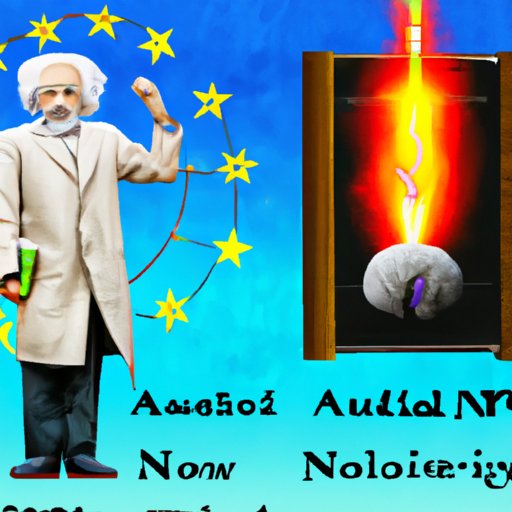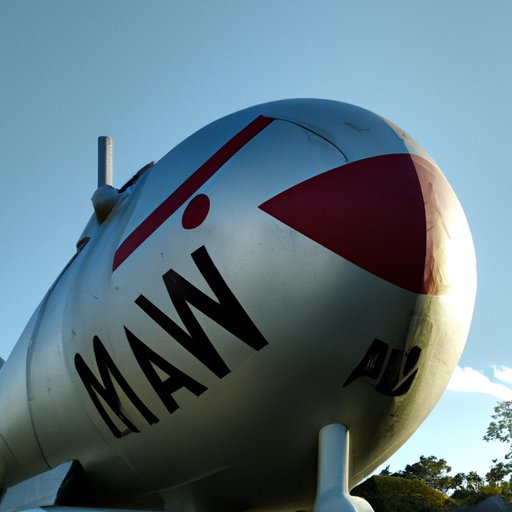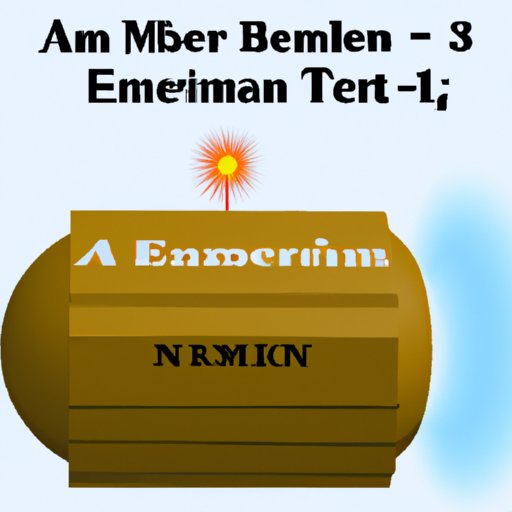Introduction
The nuclear bomb is one of the most powerful weapons ever created by humans. It is a weapon of mass destruction capable of causing widespread death and destruction in a matter of seconds. The invention of the nuclear bomb has had a profound effect on the way we think about war and peace, and its development has been the subject of much debate and controversy over the years. In this article, we will explore who invented the nuclear bomb, the history of its development, and the impact it has had on modern warfare.
History of the Nuclear Bomb: Tracing the Development of the World’s Most Powerful Weapon
The invention of the nuclear bomb can be traced back to the 1940s, when a group of scientists working on the Manhattan Project set out to develop an atomic bomb. Prior to this, scientists had been researching the possibilities of nuclear energy, but it was not until the Manhattan Project that they were able to create a weapon of mass destruction. The timeline of events leading up to the invention of the nuclear bomb began in 1939, when German physicist Otto Hahn first split the atom. This led to further research into nuclear fission, which eventually resulted in the creation of the atomic bomb. Scientists from the United States, Britain, Canada, and other countries worked together to develop the weapon, with the help of the U.S. government. By 1945, the bomb was ready for testing and was dropped on Hiroshima and Nagasaki, Japan.

How Albert Einstein Helped Create the Nuclear Bomb
Albert Einstein is often cited as being one of the key figures behind the invention of the nuclear bomb. While he did not work directly on the Manhattan Project, his letter to President Roosevelt in 1939 warning him of the potential dangers of nuclear weapons helped spark the project’s development. In his letter, Einstein warned Roosevelt of the destructive power of a “new phenomenon” that could be used in a bomb of “unparalleled force”. His words prompted the president to fund the Manhattan Project, which would eventually lead to the creation of the world’s first atomic bomb.
The People Behind the Invention of the Nuclear Bomb
The Manhattan Project was led by J. Robert Oppenheimer, an American physicist who is often referred to as the “father of the atomic bomb”. Oppenheimer was joined by several other prominent scientists, including Enrico Fermi and Edward Teller. Fermi was an Italian-American physicist who was responsible for the first self-sustaining nuclear chain reaction, while Teller was a Hungarian-American physicist who developed the first hydrogen bomb. These two men, along with Oppenheimer, were instrumental in the development of the atomic bomb.
An In-Depth Look at the Manhattan Project and the Creation of the Nuclear Bomb
The Manhattan Project was a top-secret U.S. government program designed to develop the world’s first atomic bomb. Over the course of the project, thousands of people worked on the development of the bomb, including scientists, engineers, and military personnel. The project was based in Los Alamos, New Mexico, and the team was led by J. Robert Oppenheimer. Technical details of the project included the use of uranium-235, a radioactive isotope, in the bomb’s core. The uranium-235 was then surrounded by a layer of explosive material, which would cause a chain reaction when detonated.

Exploring the Impact of the Nuclear Bomb and Its Inventors on Modern Warfare
The invention of the nuclear bomb had a profound effect on the way wars are fought. Its power and destructive potential made it the most feared weapon of its time, and its use in 1945 marked the beginning of the nuclear age. Today, the threat of nuclear war still looms large, and the legacy of the inventors of the nuclear bomb remains a powerful reminder of the devastating consequences of war. The effects of the nuclear bomb have been far-reaching, and its use has led to a greater understanding of the need for disarmament and peace.
Conclusion
The invention of the nuclear bomb has had a lasting impact on the world. Its development and use were the result of years of research by some of the world’s greatest scientists, and its destructive power has changed the nature of warfare forever. The legacy of the inventors of the nuclear bomb, from Albert Einstein to J. Robert Oppenheimer, is a reminder of the consequences of nuclear war and the importance of disarmament and peace.
(Note: Is this article not meeting your expectations? Do you have knowledge or insights to share? Unlock new opportunities and expand your reach by joining our authors team. Click Registration to join us and share your expertise with our readers.)
